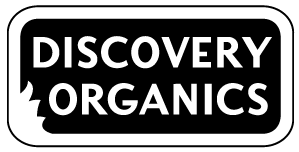Discovery Ramblings - September 24, 2021
Discovery Ramblings - September 24, 2021
Randy Hooper - Discovery Organics
So let’s talk about this global shipping crisis, because while you may not notice it, there are retailers, wholesalers, importers, chains all going ape-shit. As we moved from local manufacturing, local lumber supply, local pretty much everything over the years to a global network of vessels and trucks that work on a just-in-time basis this has been skewered by a lack of truck drivers, shortages of sea containers, port congestion etc.
Whether shipping bananas from Ecuador, or steel to Taiwan, or rice to Russia, or Canadian pork to China, growers and shippers are dropping like flies – unable to find containers, much less get them into a port, onto a boat and unloaded at the other end. It is a complete mess.
Since I mentioned this last it has not gotten better, not one bit.
Prices of shipping containers are on course to keep rising for the rest of the year amid strong global trade demand, according to analysts. As of last week, the Drewry World Container Index, which provides weekly assessments of container freight rates, surged for the 19th consecutive week to US $9,817.72 per 40-foot container – a 351 per cent increase versus the same week in 2020.
And then there’s this crisis looming in England “the carbon dioxide crisis”. Which seems weird, but there is a lot of CO2 used in food production, which is manufactured from natural gas and mostly by fertilizer companies. (Seems more logical we could suck from it directly out of the atmosphere – considering there’s a surplus there.)
The British Retail Consortium, which represents the major chains, said it expected to see food shortages by the end of the week, while pork suppliers warned of "farmageddon" within 10 days.
Pig farmers have threatened to slaughter animals on their land for render because of a growing backlog at abattoirs and processing plants due to the CO2 shortage.
The boss of Iceland Supermarkets said he expected supermarket shelves to begin to empty in the "coming days" as shortages of carbon dioxide, compounded by a lack of haulage drivers.
Richard Walker said: "This is no longer about whether or not Christmas will be OK – it's about keeping the wheels turning and the lights on so we can actually get to Christmas. This could become a problem over the coming days and weeks, so this is not an issue that's months away."
Carbon dioxide has a variety of critical uses in the food and drink industry, including putting fizz into beer, stunning and killing animals for meat, and in packaging to lengthen the shelf life of fresh foods.
But the UK has been hit by a shortage as a consequence of the closure of two fertilizer plants, which manufactured the gas in vast quantities as a by-product. The plants, which made about 60 percent of the UK's carbon dioxide supply, ceased production after the spike in gas prices made them uneconomical to run.
Port Congestion isn’t getting any better either and continues to dominate the behind-the-scene news.
“We’re getting into the full peak season,” Gene Seroka, executive director of the Port of Los Angeles, told the Los Angeles Times. “Every node of this supply chain is maxed out.” That means 89 container ships waiting to be unloaded at the ports of Los Angeles and Long Beach, and cargo containers piled up on the docks at those ports, which handled nearly one-third of the nation’s imports last year. It means a shortage of those container ships after many were put out of service early in the pandemic.
There’s more. There are hold-ups in warehousing and land transport because it’s hard to find workers at the wages companies are offering, or companies (Amazon) are burning through workers too fast to be sustainable in the long run. Consumer demand has dropped and risen with the waves of the pandemic, making things unpredictable. And businesses have found out that the just-in-time supply chains they’ve spent years honing to save money by ensuring they never have anything extra are also vulnerable supply chains. That hit Toyota hard when one COVID-19 case in an auto supply manufacturer in Vietnam was the straw that forced Toyota to cut its September output by 40%.
You might see the outcome of supply chain problems on the shelves of your local grocery store. Some stores are limiting purchases of certain items—including, yes, toilet paper. But also peanut butter, pasta, and more. Then there are the holidays…
It is certainly not a pretty scene out there in the world of global freight. All the more reason to shop, act, and be as locally as possible!
